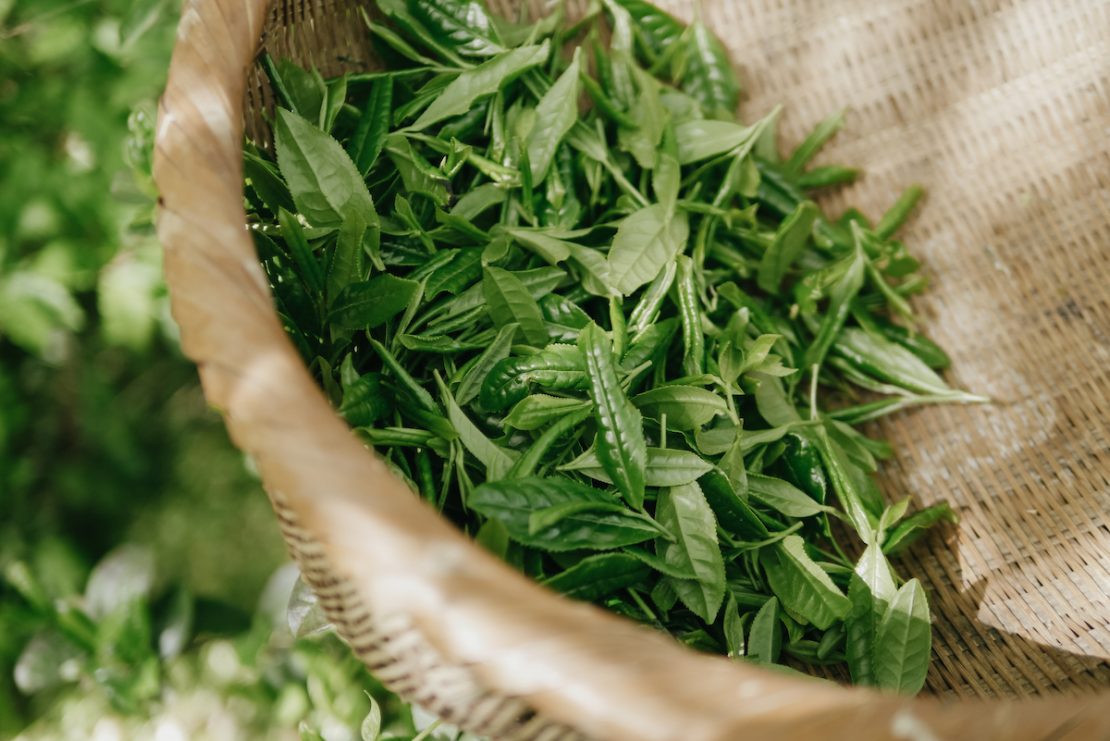
Transform Your Day with Herbs That Motivate
Motivational sparks of creativity help fill our lives with play, joy, and fun! These lightbulb moments often ignite passion, enthusiasm, and excitement, but we know that it can sometimes feel difficult to carry creative ideas forward and bring them into reality. That’s why we need to add herbs that motivate into our materia medica!
To combat feelings of listlessness, there are herbs that can make a profound difference in your energy levels. Used wisely, these allies can help us move through motivational blocks and take forward action. Whether you are experiencing a summer slump, winter blues, creative burnout, or general low motivation, these are some of our favorite herbs to help you regain a healthy sense of drive.
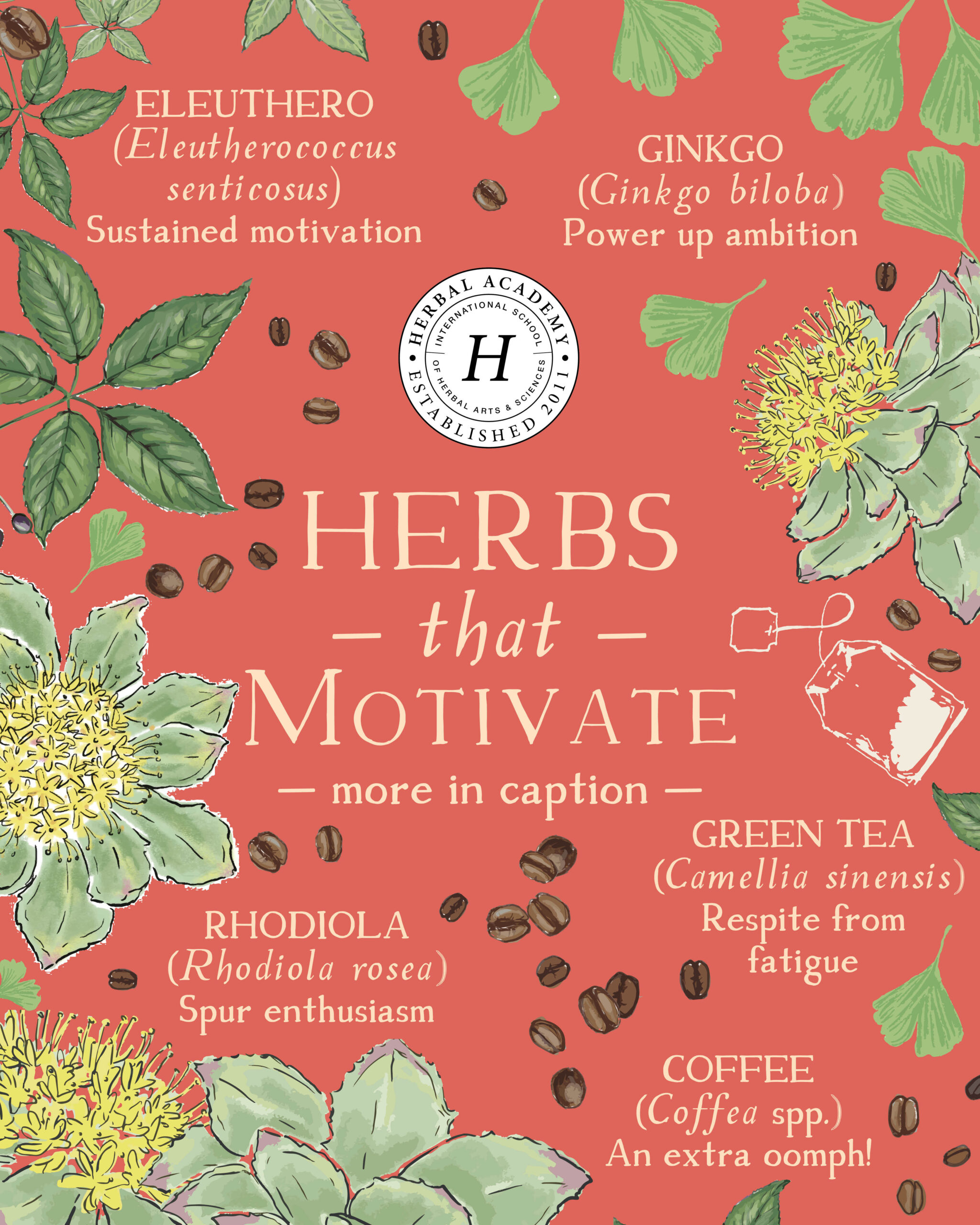
5 Herbs for Motivation
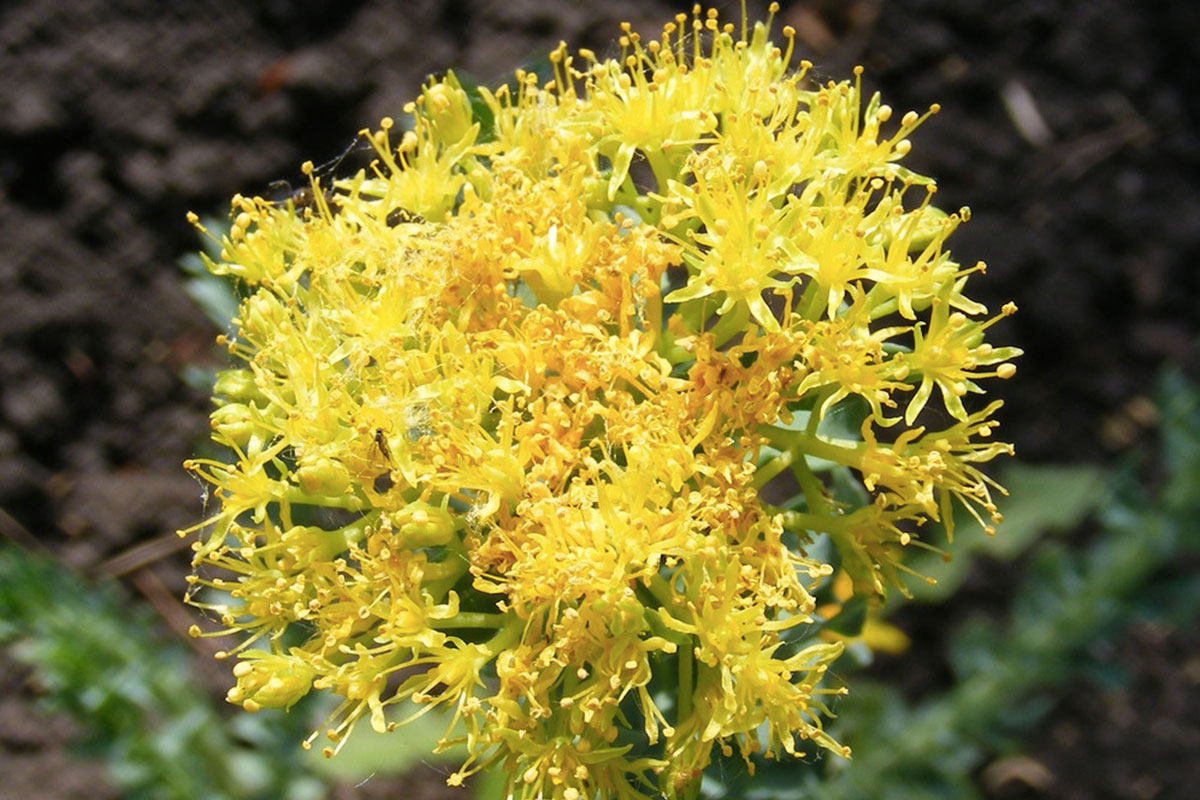
Rhodiola (Rhodiola rosea) Root
Like a gentle kick in the pants, rhodiola helps spur enthusiasm by increasing energy levels. When it’s a little get-up-and-go zeal that you’re after, adding rhodiola to your daily routine is a fast-acting option for support. Rhodiola root is used traditionally in cold-weather northern cultures such as those of Siberia, Mongolia, and Sweden to support energy, focus, vitality, and longevity. Due to its function as an energizing adaptogen, rhodiola has become more popular in modern Western herbalism (Groves, 2016).
Scientific studies have produced evidence to support rhodiola’s traditional use as a stimulating adaptogen. Rhodiola root extract has been shown to lessen symptoms of mild to moderate depression when taken in doses of 340 or 680 mg/day over a 6 week period (Darbinyan et al., 2007). However, since rhodiola can be quite stimulating, caution should be used in cases of bipolar disorder where mania is a risk factor. Though rhodiola extract is characterized by a pleasing red hue, most people prefer to take rhodiola as a capsule, as it has a strong and extremely astringent taste.
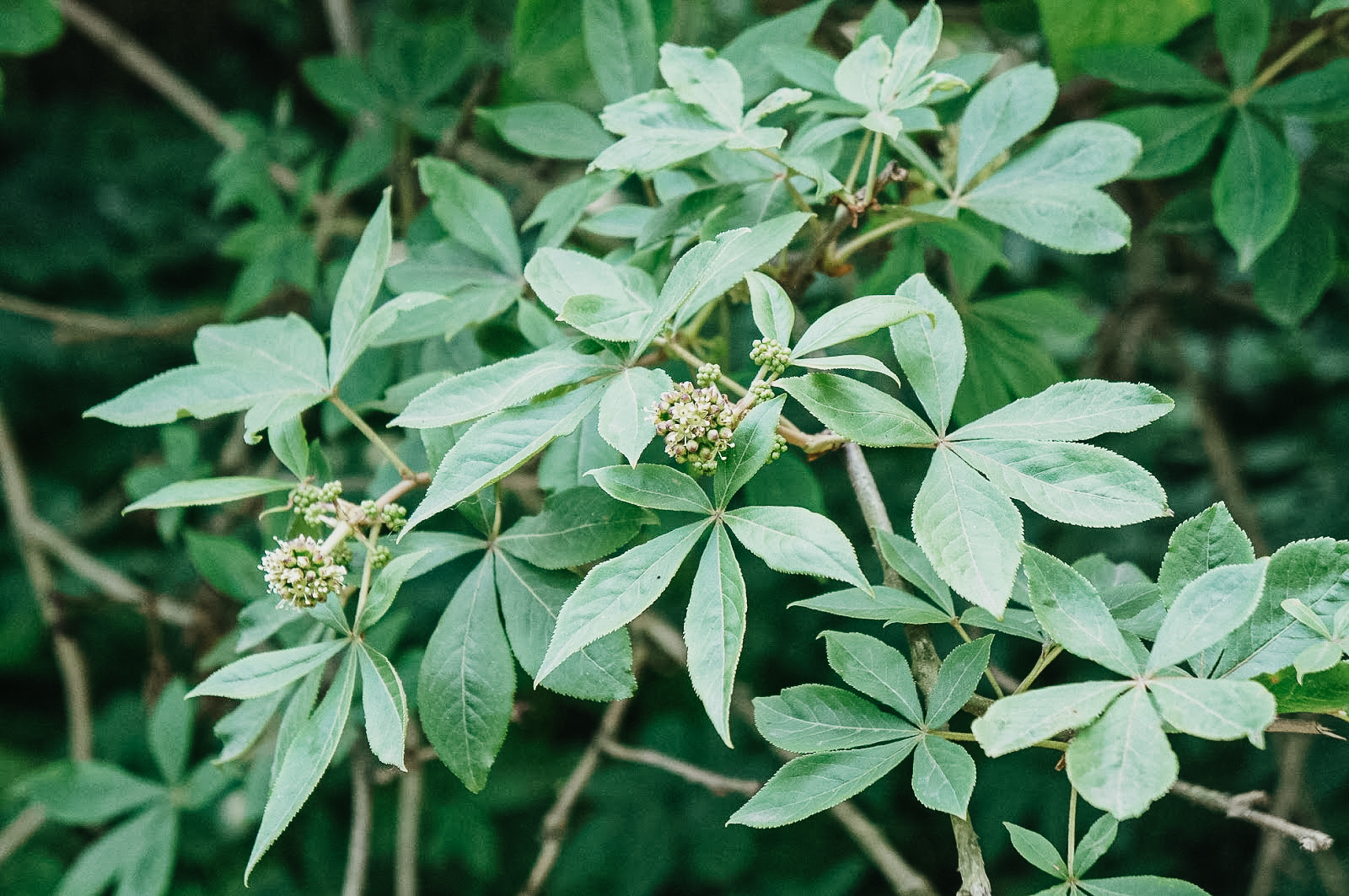
Eleuthero (Eleutherococcus senticosus) Root
For those days when you’re feeling uninspired and mired by day to day tasks, eleuthero can give you that little (or big!) boost that you need to not just get through it…but to feel good doing it. A powerful and well-researched adaptogen, eleuthero also has roots in traditional Siberian herbalism, and in fact, one of its common names is “Siberian ginseng.” Eleuthero is especially helpful in calming stress and in easing hypersensitivity to stressors, helping us to be more resilient in the face of obstacles and pressure (Groves, 2016).
More specifically, eleuthero has also been shown to improve both cognitive function and immune system activity. In one scientific study, a combination of rhodiola (Rhodiola rosea) root, schisandra (Schisandra chinensis) berry, and eleuthero (Eleutherococcus senticosus) root extract was shown to significantly (and quickly) improve cognitive performance as compared to the placebo (Aslanyan et al., 2010). Another study using eleuthero extract alone found that the use of the extract was correlated with a significant boost in immune system function by enhancing T lymphocyte activity (Bohn et al., 1987).
Sustained motivation, improved alertness, and enhanced immune function—here we come!
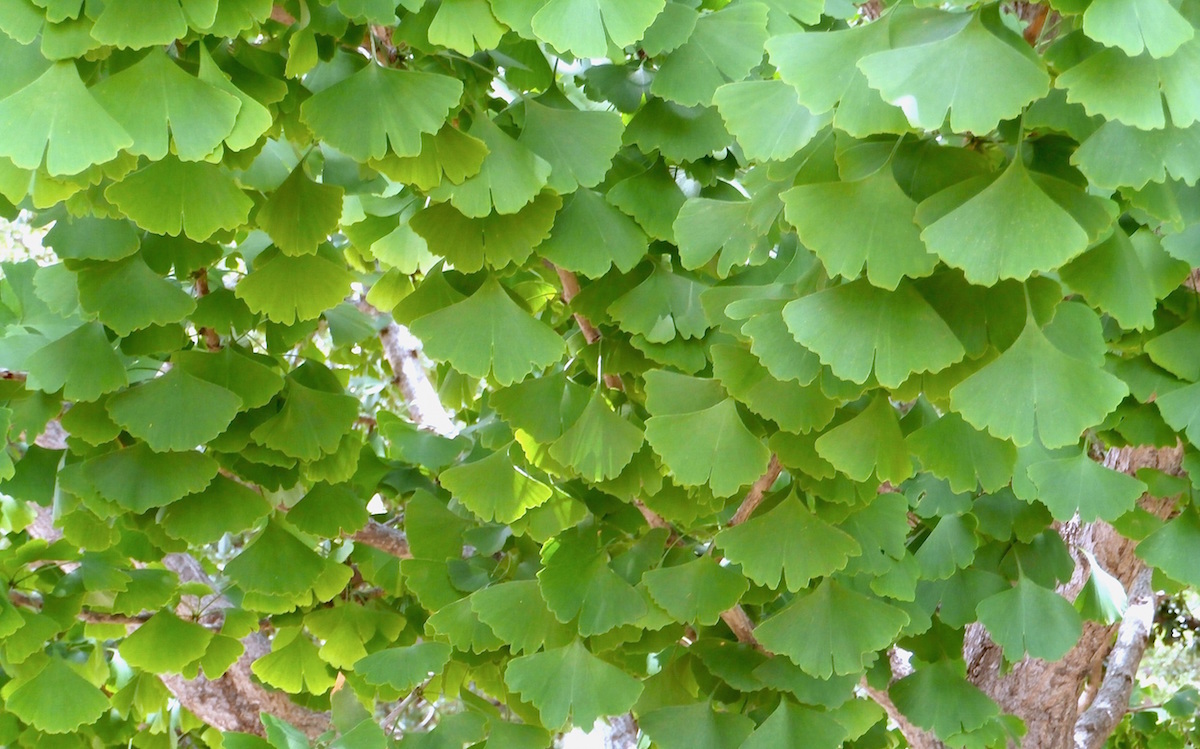
Ginkgo (Ginkgo biloba) Leaf
If you’ve felt like your reserve of energy is not where you’d like it to be, ginkgo is an optimizer to consider. Powering ambition up and tension levels down, ginkgo offers a potent foundation to tap into reserves of inspiration, primarily by helping your brain receive the blood flow and nutrition that it needs to function optimally.
Gingko nuts rather than leaves have historically been used in Chinese medicine. However, Chinese medicine as well as other herbal traditions now make use of gingko leaves, and their function as a circulatory stimulant has been demonstrated in clinical trials for the past few decades (Mills & Bone, 2000).
Gingko increases blood flow, making it useful for issues that involve restricted or limited cerebral blood flow, such as cases of cognitive impairment, difficulty with memory, headaches, fatigue, and tinnitus (Mills & Bone, 2000). Due to its ability to enhance memory and cognitive function through promoting microcirculation throughout the brain and by supporting the brain’s efficient usage of glucose, gingko is especially respected as a helpful herb for the elderly, and may be supportive in the early stages of dementia (Groves, 2016).
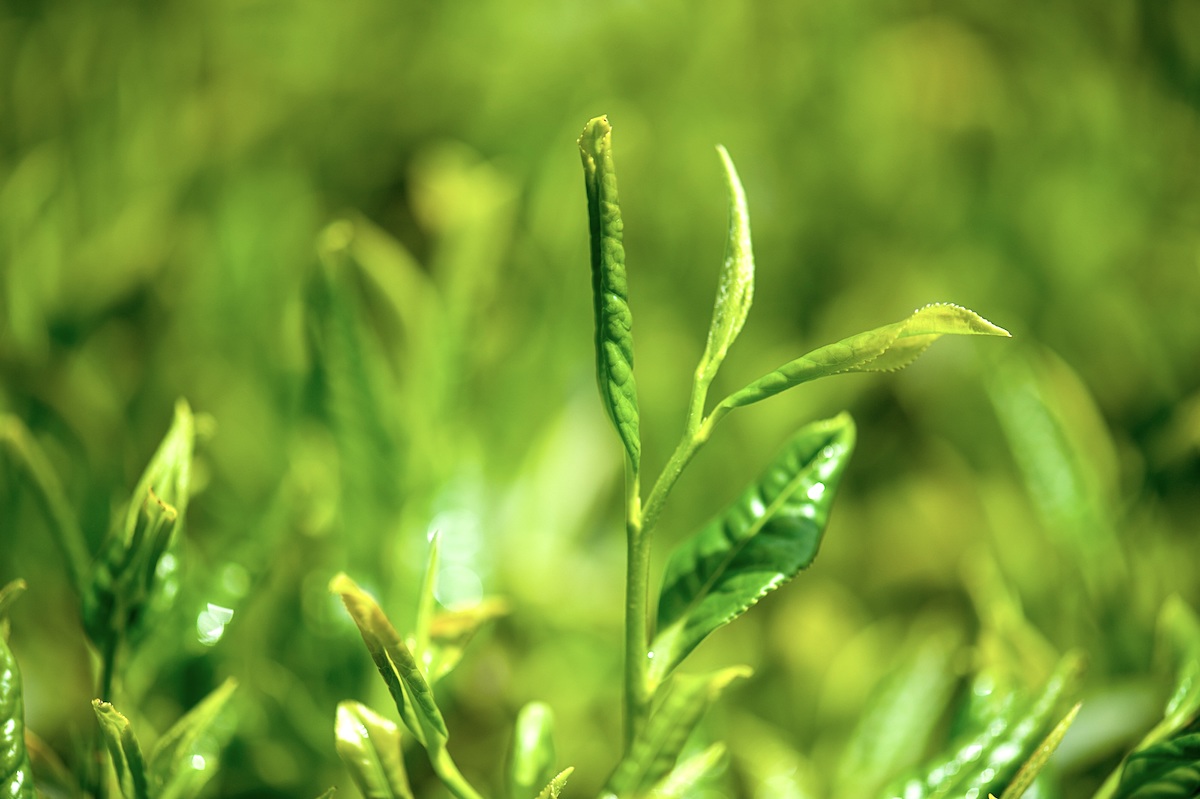
Green Tea (Camellia sinensis) Leaf
Invigoration, immune-enhancement, and inspiration in a cup, green tea in all its varieties provides respite from fatigue. Adding green tea to your daily mix can help bring about your most expansive self! Ayurveda considers green tea to be sattvic, meaning that it has a clarifying rather than agitating quality.
The benefits of green tea are many. Due largely to anti-inflammatory and antioxidant activity, compounds in green tea show promise in staving off or lessening the impacts of a range of illnesses, such as cancer and neurological and cardiovascular issues (Mokra et al., 2022). Green tea has also been shown to benefit oral health through its anti-inflammatory and antimicrobial properties (Vyas et al., 2021). Furthermore, green tea contains L-theanine which is known to have a calming effect. Of course, if you are sensitive to caffeine, tea and coffee are best avoided in the afternoon so as not to interfere with getting a good night’s rest. That said, be it matcha, sencha, hojicha, or another green tea of choice, this time-tested beverage has much to offer!
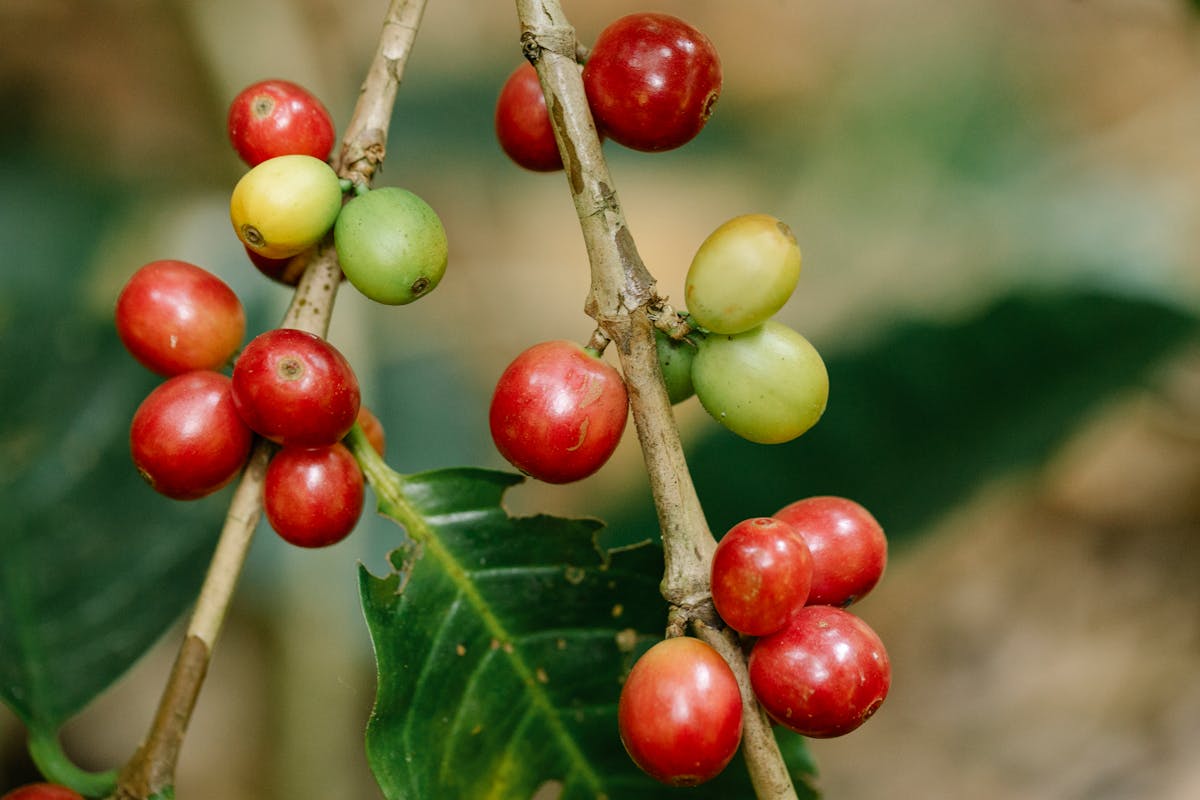
Coffee (Coffea spp.) Fruit
That’s right, coffee is often thought of as the ultimate plant-based “oomph” for low energy mornings. Full of antioxidants and health-promoting polyphenols, coffee in moderation has an uplifting and enjoyable effect on mood and energy levels. Add a sprinkle of ground cardamom to your morning cup for a boost of mental clarity, as well as aromatic delight. Or, combine coffee with supportive mushrooms such as reishi for additional nourishment and adaptogenic benefits. Coffee has been shown to improve a wide array of cognitive functions (McLellan et al., 2016), so when your brain needs a boost, a cup of coffee may be just the thing. For some, one or two cups of coffee in the morning is the perfect recipe for supporting the get-up-and-go drive. For those who are more sensitive to caffeine, green or black tea may be a better option.
In Closing,
For those times when you are feeling a little lackluster, there are a host of herbal allies that can be called upon. Herbs that motivate you can be simple as your morning cup of coffee or tea. Energizing adaptogens, herbs that offer deep nourishment, and those that give us a gentle kick in the pants are among the plants that we can call upon when we need an extra motivational boost.
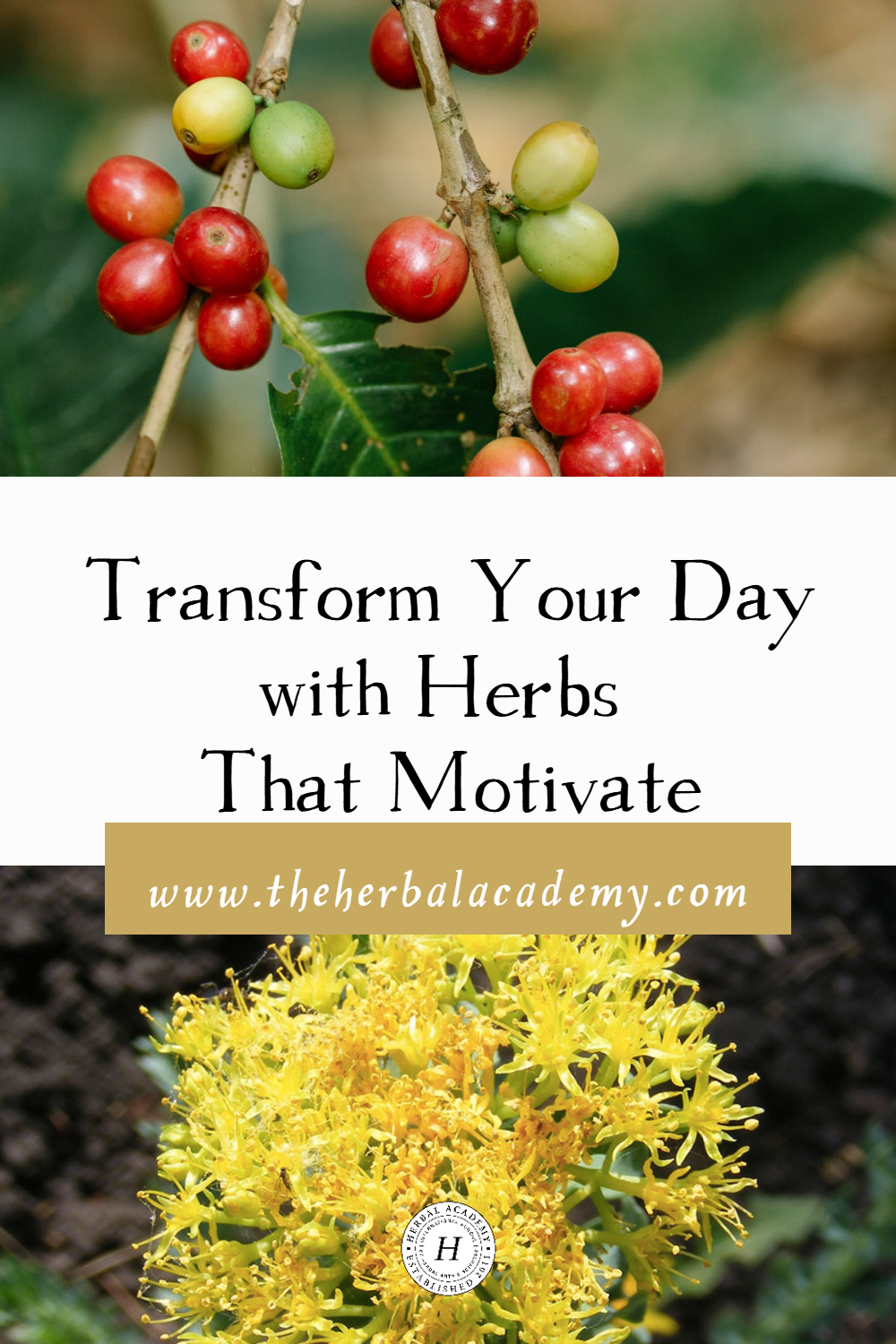
REFERENCES
Aslanyan, G., Amroyan, E., Gabrielyan, E., Nylander, M., Wikman, G., & Panossian, A. (2010). Double-blind, placebo-controlled, randomised study of single dose effects of ADAPT-232 on cognitive functions. Phytomedicine: International Journal of Phytotherapy and Phytopharmacology, 17(7), 494–499. https://doi.org/10.1016/j.phymed.2010.02.005
Bohn, B., Nebe, C.T., & Birr, C. (1987). Flow-cytometric studies with Eleutherococcus senticosus extract as an immunomodulatory agent. Arzneimittel-Forschung, 37(10), 1193–1196. https://pubmed.ncbi.nlm.nih.gov/2963645/
Darbinyan, V., Aslanyan, G., Amroyan, E., Gabrielyan, E., Malmström, C., & Panossian, A. (2007). Clinical trial of Rhodiola rosea L. extract SHR-5 in the treatment of mild to moderate depression. Nordic Journal of Psychiatry, 61(5), 343–348. https://doi.org/10.1080/08039480701643290
Groves, M.N. (2016). Body into balance: An herbal guide to holistic self-care. Storey Publishing.
McLellan, T., Caldwell, J., & Lieberman, H. (2016). A review of caffeine’s effects on cognitive, physical and occupational performance. Neuroscience & Biobehavioral Reviews, (71), 294-312. https://doi.org/10.1016/j.neubiorev.2016.09.001
Mills, S., & Bone, K. (2000). Principles and practice of phytotherapy: Modern herbal medicine. Churchill Livingston.
Mokra, D., Joskova, M., & Mokry, J. (2023). Therapeutic effects of green tea polyphenol (‒)-epigallocatechin-3-Gallate (EGCG) in relation to molecular pathways controlling inflammation, oxidative stress, and apoptosis. International Journal of Molecular Sciences, 24(1), 340. https://doi.org/10.3390/ijms24010340
Vyas, T., Nagi, R., Bhatia, A., & Bains, S. K. (2021). Therapeutic effects of green tea as an antioxidant on oral health- A review. Journal of Family Medicine and Primary Care, 10(11), 3998–4001. https://doi.org/10.4103/jfmpc.jfmpc_943_21







